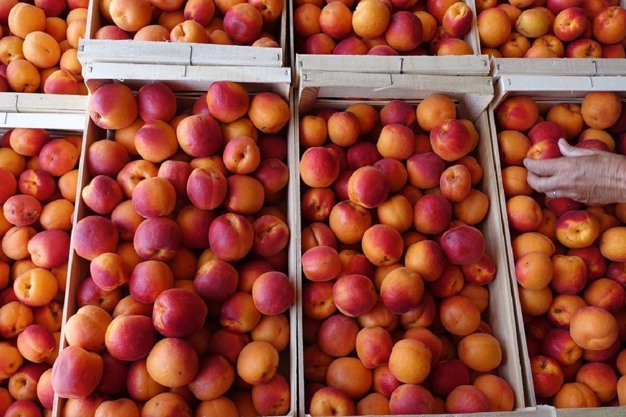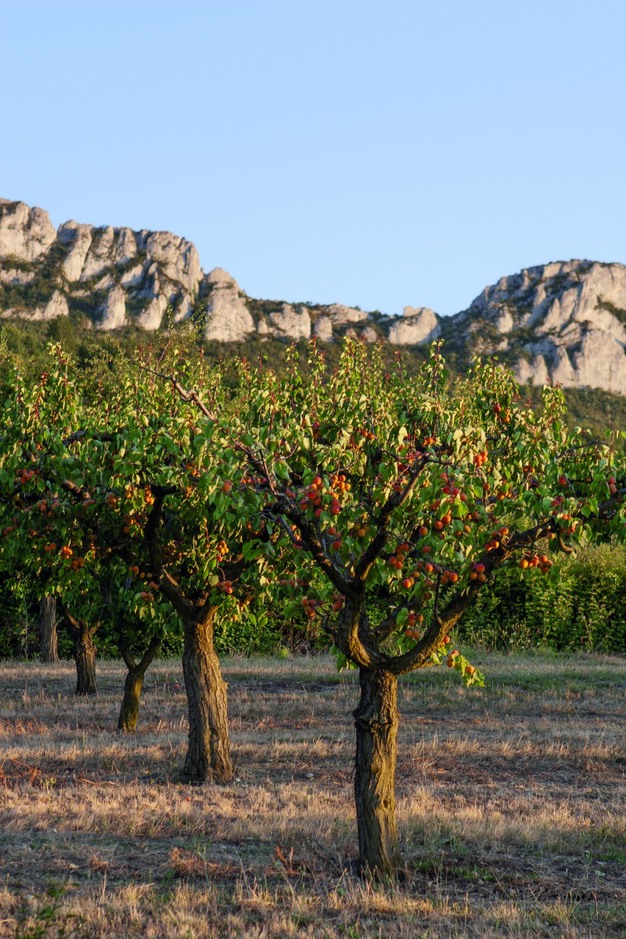On the 2nd of April, the European Commission added "Abricot des Baronnies" to the register of Protected Geographical Indications (PGI). It took nine years of hard collective work within a complicated climate context, during which production has been refocused," according to the Chamber of Agriculture of the Drôme department.
PGI Abricot des Baronnies represents 83 operators who are members of the Union for Valuing Abricots des Baronnies, 50 apricot growers, 3 shippers (sorting, grading and packaging), 30 grower-shippers and a potential production of 8,000 tons from 2,200 ha of orchards, according to INAO.
 © Abricot des Baronnies
© Abricot des Baronnies
An apricot with a distinctive blush
Abricot des Baronnies is distinguished by its famous "blush" (red on one side) and its sugar content (minimum of 12%). "These special characteristics are the result of a specific climate (high daily temperature variations and lots of sunshine, combined with low-fertility soils and precise orchard management) in the southern Drôme region, at the foothills of the Alps."
 The Abricot des Baronnies production is now officially recognized as a Protected Geographical Indication (PGI), following publication of the implementing regulation in the Official Journal of the European Union on April 2nd, 2024 / © Abricot des Baronnies
The Abricot des Baronnies production is now officially recognized as a Protected Geographical Indication (PGI), following publication of the implementing regulation in the Official Journal of the European Union on April 2nd, 2024 / © Abricot des Baronnies
"A Production that respects environment and biodiversity"
"Today, family-run farms and marketers perpetuate a fruit-growing tradition and artisanal know-how, such as the selection of the most suitable varieties, cultivation in orchards of limited density, harvesting at optimum ripeness, precise sorting and limited preservation, all of which help to produce these renowned apricots. The specifications also stipulate the presence of bird and pollinator nesting boxes, mandatory winter ground cover, a ban on total chemical weeding, and the fractioning and limiting of mineral fertilizers on farms where more than 10% of agricultural land is occupied by agro-ecological infrastructures."
For more information:
abricotdbaronnies@gmail.com
abricotdesbaronnies.com
